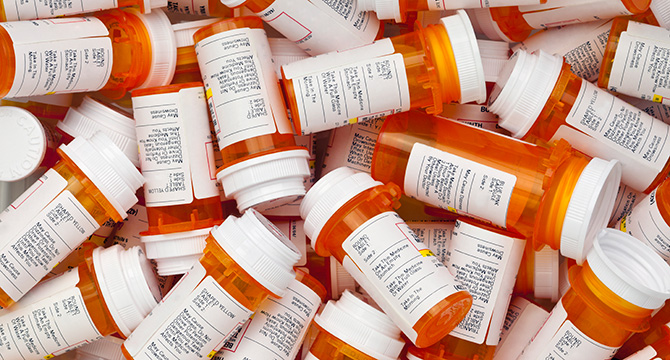Florida’s New Law Changes Physician Responsibilities for Opioid Dispensing

Florida’s House Bill (HB) 21, enacted to help combat opioid abuse, contains several noteworthy changes to Florida law that impact the dispensing of opioids.
Effective July 1, 2018, dispensing providers must consult Florida’s Prescription Drug Monitoring Program (PDMP) prior to dispensing controlled substances to patients, and must report any controlled substances dispensed in the PDMP by the following business day. The new dispensing requirements are discussed in further detail below:
- The prescriber or dispenser must verify a patient’s identity and consult the PDMP for a patient’s controlled substance dispensing history prior to prescribing or dispensing controlled substances.[1] Specifically, “[a] prescriber or dispenser or a designee of a prescriber or dispenser must consult the system to review a patient’s controlled substance dispensing history before prescribing or dispensing a controlled substance for a patient age 16 or older. This requirement does not apply when prescribing or dispensing a nonopioid controlled substance listed in Schedule V of [Florida Statutes (“F.S.”) section] 893.03 or 21 U.S.C. 812.”[2] Failure to comply with the consulting requirement can result in a non-disciplinary citation for the first offense, and disciplinary action under F.S. section 456.073 for each subsequent offense.
- HB 21 eliminates previous exemptions from reporting under the statute, particularly exemptions for “[a] health care practitioner when administering a controlled substance directly to a patient if the amount of the controlled substance is adequate to treat the patient during that particular treatment session” and “[a] pharmacist or a dispensing practitioner when dispensing a one-time, 72-hour emergency resupply of a controlled substance to a patient.” Because these exemptions no longer exist under the statute, the dispensing practitioner will need to record the dispensing of opioids in the PDMP in situations which were previously exempt under the statute.
- Requires a provider to record the dispensing of an opioid into the PDMP, adding that “[f]or each controlled substance dispensed to a patient in this state, the following information must be reported by the dispenser to the system (PDMP) as soon thereafter as possible, but no later than the close of the next business day after the day the controlled substance is dispensed unless an extension or exemption is approved by the department:
- The name of the prescribing practitioner, the practitioner’s federal Drug Enforcement Administration registration number, the practitioner’s National Provider Identification or other appropriate identifier, and the date of the prescription.
- The date the prescription was filled and the method of payment, such as cash by an individual, insurance coverage through a third party, or Medicaid payment. This paragraph does not authorize the department to include individual credit card numbers or other account numbers in the system.
- The full name, address, telephone number, and date of birth of the person for whom the prescription was written.
- The name, national drug code, quantity, and strength of the controlled substance dispensed.
- The full name, federal Drug Enforcement Administration registration number, State of Florida Department of Health issued pharmacy permit number, and address of the pharmacy or other location from which the controlled substance was dispensed by a practitioner other than a pharmacist, the practitioner’s full name, address, federal Drug Enforcement Administration registration number, State of Florida Department of Health issued license number, and National Provider Identification.
- Whether the drug was dispensed as an initial prescription or a refill, and the number of refills ordered.
- The name of the individual picking up the controlled substance prescription and type and issuer of the identification provided.
- Other appropriate identifying information as determined by department rule.”[3]
A prescriber or dispensing provider who willfully and knowingly fails to record the dispensing of controlled substances under this section commits a misdemeanor of the first degree.[4]
HB 21 also amends various other sections of Florida law to increase the regulations surrounding the prescribing and dispensing of controlled substances. This Alert does not address all new requirements implemented under HB 21.
For more information on Foley’s Health Care Industry Teams including the team, publications, and other materials, visit foley.com/health-care.
The foregoing was prepared for general information purposes only. This information is not legal advice and is not to be acted upon as such.
[1] Fla. Stat. § 893.055(8).
[2] For purposes of this subsection, a ‘nonopioid controlled substance’ is a controlled substance that does not contain any amount of a substance listed as an opioid in Florida Statutes section 893.03 or 21 U.S.C. section 812.
[3] Fla. Stat. § 893.055(3)(a).
[4] Id. § 893.055(9).
